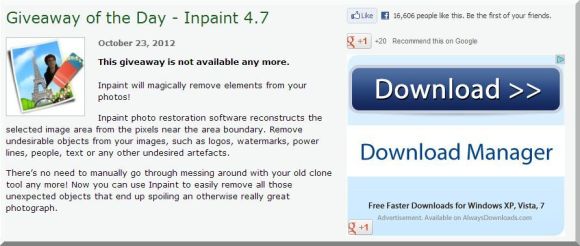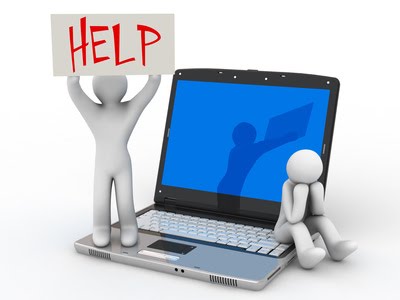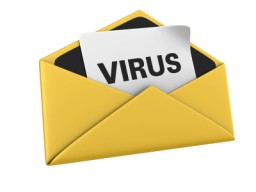Being a software engineer, I get called quite often by friends or family to help them with a virus problem. In these instances, we usually can get the virus removed. However, removing a virus can be a real time waster, even for tech experts. One of odd things about this is that I rarely, if ever, have to remove viruses from any of my personal computers. I think that their are some distinct reasons why I am able to avoid getting a computer virus. In this post, I am going to give you some of my personal tips so you never get a virus again.
Install a Good Antivirus Software and Keep it Up to Date
If you don’t have antivirus software installed, then you need to get on this right away. I personally prefer to use a free antivirus. I believe many of the free anti-virus software packages are pretty good. If you want to stick with a free anti-virus, I would recommend Windows Defender. The second part of this is that you need to keep this software up to date. Most good antivirus software will automatically update itself. However, it is a good idea to check that this is happening. When it comes to scanning, it is a good idea to scan every week or so. I recommend setting up your antivirus to run on a schedule. That way you won’t forget to scan. By keeping your virus protection software up to date and by scanning often, you can make sure you catch any threats before they can wreak havoc on your PC.
Be Careful When Opening and Clicking Links Within Emails
Opening a bad attachment or directly clicking on a virus in an email are two really common ways to get a virus. There are quite a few ways to avoid this. First, be really careful opening emails that have attachments from people you don’t know. Second, if you open an email, you don’t recognize the sender, and the email itself doesn’t make any sense, don’t click on any of the links in the email. In this case, it is best to just delete the email and move on. Last, if you are not with a solid email provider like GMail, Yahoo Mail, etc, then you may want to think about switching. These services do a great job of filtering out any viruses before they even get to your inbox. One last tip is if you do click a link and your browser gives you a big warning about the page you are about to visit not being secure, don’t continue, and close out of the browser immediately.
Be Careful When Browsing the Internet
Another really common place to get a virus is from a bad website. We have all been there, we have clicked on a link or a result in Google search and we end up at a website that just doesn’t look trustworthy. These bad sites will often have a number of popups, try to get you to download files, and won’t even let you click the back button. In most cases, you are still OK. However, what you do next may determine if you get a virus or not.
First, see if you can go back or even see if you can close out the browser window. If it doesn’t let you, you can try to close any popups or notifications using the “X” or the cancel button. If you still can’t get away from the bad site, you can use the task manager by pressing CTRL+ALT+DEL to manually close your browser task. The big key here is that you don’t download and install anything. Most browsers today will ask if you are sure that you want to continue with a download. This is where you make your last stand against the virus.
Next, it is best to avoid certain types of sites. First of all, it is recommended that you avoid public torrent sites. These are well-known virus farms. You also want to be careful around any type of adult sites or any low quality streaming sites. I am not talking about YouTube. I am talking about sites that stream a specific TV show or channel illegally. These types of sites can contain malware as well.
One last thing to look out for when browsing is fake “download”, “play now”, “play”, etc buttons. (Image courtesy of PCWorld) 
Be really careful around these. Keep an eye out for these on sites that you particularly don’t trust. Also, while on the topic, don’t fall for the “Your computer is infected” ads or popups. These are usually a trick to get you to download a virus. If you see one of these and you are unsure, close it, then open up your virus protection software and run a scan. This will tell you if you are truly infected or not.
Be Careful When Downloading Programs or Files
There are many times when you really just need to download a program or file from the Internet. If you do this correctly, then there is no issue. However, the key here is that when you download something, make sure it is from a trusted source. Downloading software directly from the software developers website is one good tip. For example, if you need to download iTunes, download it from Apple itself, not some third party distributor. The only time you should download from a third party site is when the site itself links to the third party site for the download.
Avoid Free VPNs
A VPN is a solid tool in your security arsenal. It won’t really protect you from getting a virus or malware, but it can protect in other ways. One thing that you will want to avoid is using a free VPN. Many free VPNs can do more harm than good. A recent study found that about a third of free VPNs contained malware. We do recommend using a VPN for the benefits they provide, however, stick with solid ones like NordVPN or IPVanish
.
By following the tips and advice above, hopefully you will never get a virus again.



How often do you run virus scan?
I would say run scan once a week.
” you can try to close any popups or notifications using the “X” or the cancel button. ” too late, it you can’t minimize or close the browser the cancel/red button is set to install.
Hey Mark,
Thanks for the comment! I have seen popups in which they can still be closed by the windows “X”. These often aren’t viruses. However, it can be tough, especially for some novice PC users, to tell if a popup is simply a popup or if it has a more malicious intent. Generally, if I am unsure about a popup, I go straight to task manager to close it.
-Adblock, Noscript, Chrome actions for youtube
-Maxthon, midori browsers
-MSE is weak> Comodo Antivirus&Firewall, LB is good. Good advice for the pro version. Bitdefender and avast do the job, but they are very annoying.
Very nice article and helpful
If everyone followed your advice, the Internet would be a much safer place. Unfortunately, many uneducated people are not aware of the dangers that a simple email can pose, and all it takes is to click on a suspicious link… All we can do is promote safe surfing and provide security tips.
I also like malwarebytes and i used many of the free antivirus programs you listed.
I also tried a few firewalls like zone alarm.
You certainly need the software for protection, but, as you pointed out in your article, the main thing is to avoid suspicious and dengerous sites.
Thanks for the comment Mark! I agree with everything that’s been said here 🙂
i tell everyone to just close the browser when that “your infected pop-up happens”, restart when it wont let you close.
Good post; I tell everybody the exact same thing, escpecily about downloading software/files.